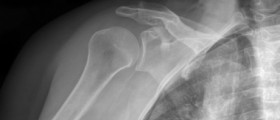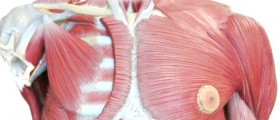
If a person is experiencing pain, stiffness and a limited range of movement in their shoulder, it could be what is referred to as frozen shoulder.
The symptoms of this condition usually arrives in three phases. The first is the freezing phase, which is painful. This phase can last in between two and nine months and will include stiffness and a lack of movement.
Phase two is the frozen phase when the pain subsides but the stiffness and limitation in movement increases. This phase can last in between four and 12 months.
Phase three is the thawing phase, which is a recovery phase which lasts in between five months and four years. In this phase, the stiffness and limitation of movement goes away gradually.
These symptoms interfere with a person’s everyday activities, such as driving, dressing, sleeping, even eating. People may not even be able to scratch their backs or put their hands in their back pockets when they are experiencing the symptoms of frozen shoulder.
Frozen shoulder is not an uncommon condition it effects one in every 50 adults at some stage of their lives. It usually occurs in middle-aged people, who are in between the ages of 40 and 60. It is also more common in people who have diabetes, an overactive thyroid gland or Parkinson’s disease.
Even though either shoulder can be affected, it is usually the non-dominant one, the one that is used less, which is affected.
In one out of five cases, the symptoms will appear in either shoulders at one time or another.
The cause of this condition is still not completely clear. Some believe that scar tissue forms in the shoulder capsule, which results in the pain and limitation of movement. However, even in this theory, doctors are not sure why the scar tissues form in the first place.
There are several ways to treat the condition. Anti-inflammatory painkillers like ibuprofen can be used for the pain. Also, there are shoulder exercises people can do that will help with the symptoms. The exercises aim to stop the shoulder from getting stiff and to maintain all of its movement. It is very important to do these exercises regularly, not only when the frozen shoulder condition gets worse.
Physiotherapy is a more advanced and serious level of exercises, and a physiotherapist will give a person expert advice on what exercises to do in order to improve the health of their shoulder.
Steroid injections into or near the shoulder joint can also bring relief to the symptoms for several weeks at a time. The steroids work in reducing the amount of inflammation in the shoulder. However, this is not a cure, because the symptoms will most likely reappear after a few weeks.












-Causes,-Symptoms,-Diagnosis,-Treatment_f_280x120.jpg)




Your thoughts on this
Loading...